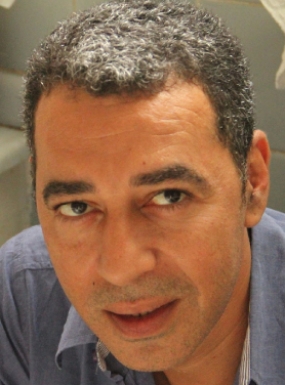One cannot go into the same river twice, taught Greek philosopher Heraclitus (544 B.C. – 484 B.C.) more than two thousand years ago. On the other side of the Atlantic, dozens of centuries later, his homonymous, artist Ayrson Heráclito from the state of Bahia, shows that fluidity, transitoriness, and the transformation of things in the world remain as challenging as they are fertile for encouraging reflection and intellectual creation.
This Heráclito, from the city of Macaúbas, dives into history and brings to the surface multiple, sparkling, and not always recognizable founding jewels of Brazilian culture. Inspired by the wide array of elements planted here by black slaves—from sugar to dendê [palm oil]—and focusing on nonfolklorized aspects, readings, and questionings regarding African survival in the Americas, he unveils glimpses of how the world is comprehended through the eyes of those who had their hands, feet, arms, and guts bound.
Pains, fears, loneliness, but also strength, glory, and faith, sadness and joy, wisdom and servitude, creativity and the suffering of the captives—all threads in the bewildering plot that weaves the genesis of Brazil—are reelaborated, inspiring new readings of contemporaneity in the artist’s oeuvre. Rereadings present themselves without losing sight of the myths, fears, and marks that accompanied the troubled emergence of the “African-Brazilian,” his history, the economic, historic, social, and cultural contexts of the arrival and “adaptation” of the black man to the national territory.
For Heráclito, contemporary slaveries such as hunger, poverty, and prejudice dialogue ceaselessly with colonial domination. Devoid of linear ties, the present enlightens the past, which in turn enhances the understanding of everyday life, and helps build a future of greater knowledge. “I am a member of the utopian crowd,” he warns. “Artistic action establishes close relations with politics. Even if it does not lead to radical change, it may represent a strategy against the pities of this world.”
“Exceptional are the cases in which references to black culture extend beyond the exotic and factual. It is precisely against that that Ayrson Heráclito constitutes his radical proposal, in the original sense of getting to the heart of the question,” writes curator Alejandra Muñoz, author of the Essay that is part of this Dossier. “Our scarce references about slavery are displaced out of the superficiality of everyday life, and into an acutely reflexive conscience.”
Further info on this artist available at the collection
